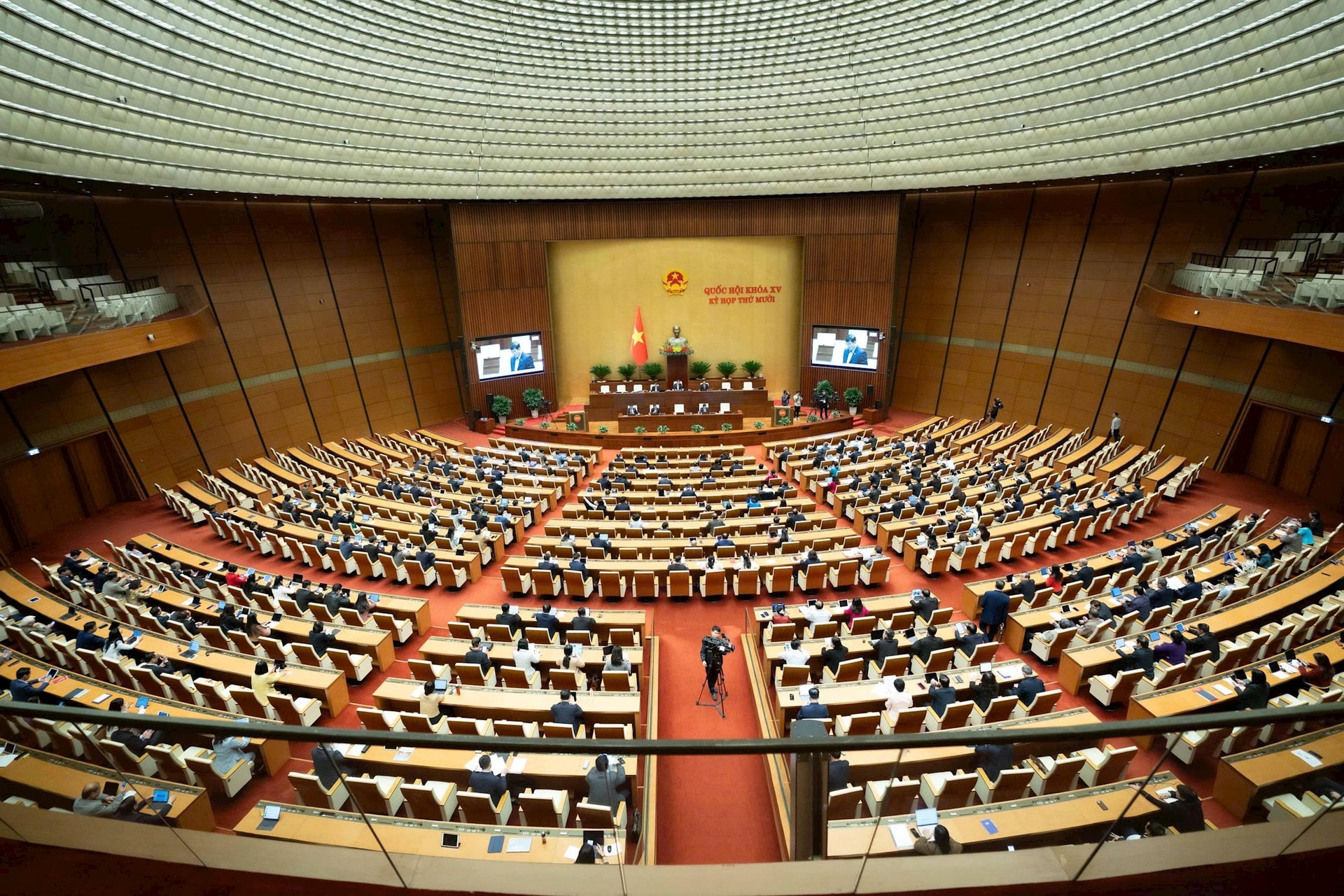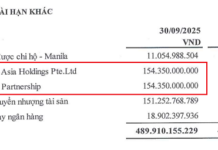Opinions are divided regarding the taxation of gold bar transfers in the draft Law on Personal Income Tax, currently under review by the National Assembly during its 10th session. While many delegates support the tax, concerns have been raised about its humanitarian impact, potential for “double taxation,” and its effectiveness in stabilizing the gold market.
During the afternoon session on November 19th, discussing the amended draft Law on Tax Administration and the amended draft Law on Personal Income Tax, several National Assembly delegates focused on clarifying the taxation of gold bar transfers.
The amended draft Law on Personal Income Tax stipulates that income from gold bar transfers will be subject to personal income tax (Article 3, Section 10, Point d). Additionally, Article 3, Section 11, authorizes the Government to determine the taxable value threshold for gold bars, the implementation timeline, and adjustments to the personal income tax rate for gold bar transfers under Article 3, Section 10, Point d, in alignment with the gold market management roadmap and detailed regulations.
Furthermore, the draft proposes a personal income tax rate of 0.1% on income from gold bar transfers (Article 19, Section 2).

Session in progress
Delegate Pham Van Hoa from Dong Thap province agreed with the explanatory report, stating that individuals profiting from gold bar transactions should be taxed. However, he argued that the 0.1% tax rate is insignificant and suggested a review to better regulate income from speculative activities, thereby stabilizing the market.
For individuals and families who sell gold bars for savings, inheritance, or emergencies, Delegate Hoa proposed exempting them from taxation. “Since their intent is not commercial, they should not be taxed. Gold is easily bought and sold, unlike real estate. Gold can be sold immediately at any gold shop. Therefore, I recommend exempting this group from taxation,” he stated.
Delegate Trinh Xuan An from Dong Nai province noted that taxing gold bars is unprecedented internationally. However, he found the proposal reasonable given Vietnam’s challenges in distinguishing between speculation, savings, and accumulation. He emphasized the need for policies tailored to these unique circumstances.
Delegate Tran Kim Yen from Ho Chi Minh City expressed concern about potential “double taxation.” She urged a thorough review to address this issue, questioning whether taxing gold sold from already taxed savings constitutes double taxation. She also highlighted the lack of social and economic rationale in taxing citizens’ gold savings.
Regarding the 0.1% tax rate, Delegate Yen argued it might be insufficient to deter gold speculation. She stressed the need for measures to curb speculation and regulate the gold market effectively.
Delegate Yen supported the Government’s authority to set taxable thresholds and adjust tax rates but urged swift issuance of implementing regulations upon the law’s enactment.
Finance Minister Nguyen Van Thang addressed concerns, stating that the Government would determine tax thresholds and rates based on gold market management needs. “The personal income tax rate for gold bar transfers will be 0.1% of the transfer value per transaction, with careful consideration of the implementation timeline,” he explained.
The Minister emphasized that the primary goal is not revenue generation but regulating gold transactions, curbing speculation, and alleviating pressure on the gold and foreign exchange markets. “Past experiences show that speculative activities disproportionately harm citizens through erratic gold price fluctuations,” he noted, assuring that the policy avoids double taxation.
“Heated Debate Erupts Over Proposed Tax on Annual Revenues of 200 Million VND”
The proposed tax threshold for household businesses, set at 200 million VND annually post the elimination of lump-sum tax from January 1, 2026, has sparked significant debate. The Ministry of Finance has indicated it will reconsider the threshold. Experts suggest that the basis for calculating the taxable threshold and the actual revenue of household businesses need to be clarified.
How Much Tax Do Businesses Under 1 Billion VND/Year Pay? A Surprising Figure Revealed!
Small businesses with annual revenue under 200 million VND are exempt from VAT and personal income tax. Those earning between 200 million and under 1 billion VND annually must pay taxes at a percentage rate based on their industry-specific revenue.
“Can’t Call It Saving When You Queue from 3 AM to Buy Gold”
Representative Trịnh Xuân An expressed agreement with the proposal to impose a personal income tax on the transfer of gold bars, stating that such a measure would help regulate the market.










































